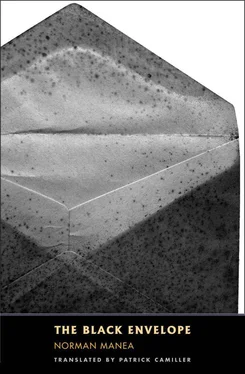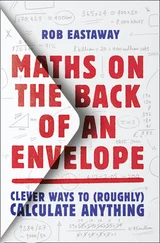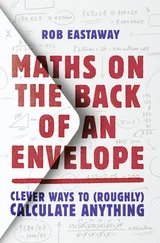You don’t need to come with me. Well, as a matter of fact, I feel like a bit of a walk in the fresh air; it doesn’t necessarily mean I’m coming with you. I wouldn’t mind at all if you did: I’d like to have your address anyhow. Behind them rustled the discarded, assembled, and again discarded clothes. They had passed by the hotel for the traveler to pick up his suitcase. They kissed, like old school pals, in front of the train’s open door. Ira held out a thin strip of red paper: her address. She laughed in a relaxed way; a wisp of hair fluttered stupidly on her forehead. Parched white lips — the train had left.
Alone in the compartment, Tolea refused to go over the failure again. It’s the same with all women: the first time, whatever happens, is always haste, insecurity, evacuation. He in her — for a short time. Copulation gymnastics, a performance, growth in the birthrate? Confused magnetism — from which, if you were lucky, you might pick up the abrupt, violent glow? A sudden rediscovery and sudden denial, yes, that was it, a discharge — he preferred not to remember. No, he didn’t want to remember the emotions, the shyness, the helplessness: no, he no longer had any desire for complications!
But it was not difficult to remember. He had first met Ira years before, in his small town in the provinces. It was full of young people from Bucharest, engineers architects doctors, sent to help in the modernization of the old historic town.
Irina had worked for a while doing technical drawing, then as a shop-window dresser and as a nursery-school teacher, all the time awaiting permission to take her final exam at the architecture school, from which she had been unexpectedly expelled just before the end of her course. She, too, was part of the circle around the young high-school teacher Vancea. The future character Tolea was already a character. And how! The Professor, as he was known, would fume and fret, perfecting his acrobatics, his flippant jokes and wordplay, his friendly banter and arrogant, offhand quibbles.
He had met her one day in the street: How are you, Irina, isn’t that your name? That’s right, Professor, I didn’t think you would remember it. The young woman who was nearly an architect, Irina Ira, followed him for a while, long enough, one street on the left, a second burning with fury. The young high-school teacher Anatol Dominic Vancea Voinov — snobbish maestro of provincial rebels, a kind of academic oddity of the small town! He was not even ten years older than all those young people, mostly ex-students of his, swarming around his somersault displays, all those school pupils students engineers doctors making rings around gramophone records, magazines tape recorders paradoxes bottles pipes, in the midst of which the thunderstruck Tolea played the role of chic, blasé clown in strident polyglot tones. Even in Russian, which he was still teaching at high school: that language, made to feel so repugnant and oppressive, had become a provocation, a pleasing oddity, in the rictus of his ham actor’s mask. There had only been time for a few silent meetings, occasions of foreboding and evasion, in the half year until she suddenly left town. But they had kept in touch by letter, and at some point he had gone to see her in Bucharest.
It was mid-December: Ira was wearing a new overcoat made of a thick blue camel’s-hair material. The city had put on some color as it played the child. Lamps, sweets, fir trees — they jostled each other in the merriment of lines on which tiny snowflakes fell as in a holiday album. Streets filled with a bright, festive light. When they reached her house, Irina invited him in. Let’s go on up, my sister isn’t home, nor is my father: he left for good a month ago, after my mother’s funeral. Now and then we get a picture postcard and a few lines — he’s back with the woman he was living with for a long time before.
They listened to music, drank some liqueur — that vague feeling, a kind of dizziness, on the beautiful evening of their meeting again. It had been all silence and evasion, nothing else. The idyllic pastel image of winter, with its cheap, inhibiting festivity? Or did the intensity of her scared eyes intimidate him? He had simply postponed any contact. And then, at some time or other, there had been a symmetrical image: Ira in summertime, on a swing. Touched up, happy. The stupidity of those childhood interludes. And again those suddenly charged eyes, promising too much. And again a chance to avoid, in fact, the secret links of touch.
Frightened by the excessive promise, the exaggerated preliminaries?
At some point he had received a brief summons from Ira, who was already working as an architect at the site of a sumptuous new station at Bra  ov: Come with me to the sea for a fortnight. The coward did not answer, but he knew that he wouldn’t be able to keep avoiding her for long. In the autumn he couldn’t stop himself: he rang her, come what may. It was her younger sister, engineer Silvia Isabela, who answered the phone: Ira was married. When how why — well, it just came to her all of a sudden, as if she wanted to escape from something that was pursuing her. The friend of a girlfriend of hers, Dr. B
ov: Come with me to the sea for a fortnight. The coward did not answer, but he knew that he wouldn’t be able to keep avoiding her for long. In the autumn he couldn’t stop himself: he rang her, come what may. It was her younger sister, engineer Silvia Isabela, who answered the phone: Ira was married. When how why — well, it just came to her all of a sudden, as if she wanted to escape from something that was pursuing her. The friend of a girlfriend of hers, Dr. B  n
n  ¸teanu, asked for her hand. She didn’t sleep a whole night, nervously fidgeting around, and in the morning she said yes. They’ve moved from Bucharest, but they come here from time to time; I’ll pass on the message. Bang bang, just like that.
¸teanu, asked for her hand. She didn’t sleep a whole night, nervously fidgeting around, and in the morning she said yes. They’ve moved from Bucharest, but they come here from time to time; I’ll pass on the message. Bang bang, just like that.
Comrade Gic  Teodosiu was right: spring in the mountains catches you and breaks you, don’t forget it. A good thing that he did not wait until May, when the moon’s golden hoof has a different step and its thorn enters so deep that you can no longer pull it out. A good thing you ended the holiday early, professore : May would have caught you in a twilight intoxicated with aphrodisiacs. There, on the bend leading up to the town, you would somehow have encountered the fata morgana … On that day, long ago, you had gone up the wooden staircase holding her small frail elbow in the palm of your hand. The dense twilight, moon growing in the window, rushed contact, the light switching on and off, snapshots, too high voltage, disaster. A romantic sequence, good only for farces. Romantic farces, that’s all: long rigmaroles with sighing and sickly feelings.
Teodosiu was right: spring in the mountains catches you and breaks you, don’t forget it. A good thing that he did not wait until May, when the moon’s golden hoof has a different step and its thorn enters so deep that you can no longer pull it out. A good thing you ended the holiday early, professore : May would have caught you in a twilight intoxicated with aphrodisiacs. There, on the bend leading up to the town, you would somehow have encountered the fata morgana … On that day, long ago, you had gone up the wooden staircase holding her small frail elbow in the palm of your hand. The dense twilight, moon growing in the window, rushed contact, the light switching on and off, snapshots, too high voltage, disaster. A romantic sequence, good only for farces. Romantic farces, that’s all: long rigmaroles with sighing and sickly feelings.
They eventually met again, after time had got all twisted up again. A cold rainy dusk: do you think you’re going to escape this time, too, that the trains, addresses, and phantoms will get muddled up, that you will put things off again? But after a few months he rang the doorbell, just for the hell of it, at the address on the red note she had given him at the station.
“I was sure you wouldn’t come …” And actually he had steered clear, walking a few times around the house to postpone it. “You can take off your raincoat. You’re not going to stand like that in the middle of the room, or are you?” The apartment, newly whitewashed, was still being redecorated. They went onto the terrace, beneath the crown of the old tree. They touched. Irina pulled away in a gesture of fright. They returned to the empty room and sat down in facing chairs. They looked at each other. Her thick, dry lips, verdigris eyes, hoarse voice. As they looked at each other, her eyes became clouded, dilated, weighed down. A kind of painful trance. Her small hands touched him. They slipped hesitantly under his shirt. Quietly, trembling all the time. Her eyes delving deeper, pained, on fire. He still had time to see the white window frame, the heavy crystal glass reddened from dense and languid wine. Then burning — or perhaps something else, a kind of dizziness. Her small hands slid down further and further. They reached the fiery center, unleashed the blood, pumped wildly and furiously, like a battering ram. Vibration, trance, lips, breasts, struggling hands — the blood striking wildly, again and again, deeper and deeper. Had she kissed anyone before, had she ever kissed another man? Complete concentration, as at the beginning of the world … The miracle, the miracle of rebirth had finally happened.
Читать дальше

 ov: Come with me to the sea for a fortnight. The coward did not answer, but he knew that he wouldn’t be able to keep avoiding her for long. In the autumn he couldn’t stop himself: he rang her, come what may. It was her younger sister, engineer Silvia Isabela, who answered the phone: Ira was married. When how why — well, it just came to her all of a sudden, as if she wanted to escape from something that was pursuing her. The friend of a girlfriend of hers, Dr. B
ov: Come with me to the sea for a fortnight. The coward did not answer, but he knew that he wouldn’t be able to keep avoiding her for long. In the autumn he couldn’t stop himself: he rang her, come what may. It was her younger sister, engineer Silvia Isabela, who answered the phone: Ira was married. When how why — well, it just came to her all of a sudden, as if she wanted to escape from something that was pursuing her. The friend of a girlfriend of hers, Dr. B  n
n 










